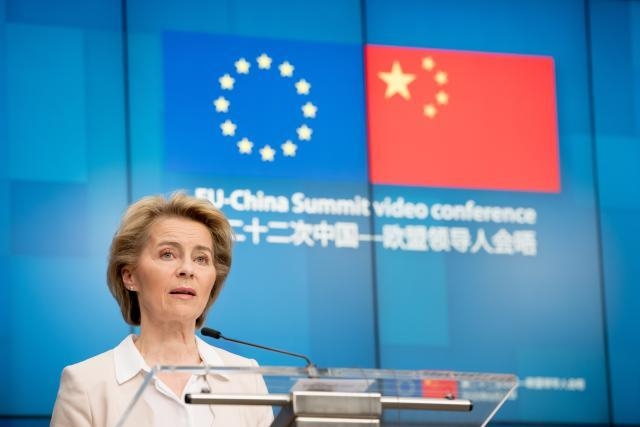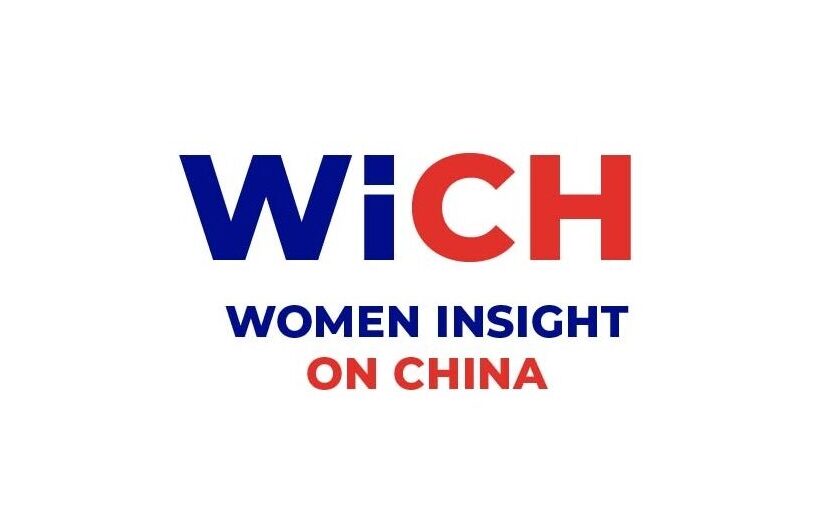On December 30, 2020, the European Commission announced that after seven years and 35 rounds of negotiations, the EU-China Comprehensive Agreement on Investments (CAI) was concluded in principle. Although the public had to wait for almost a month to see the actual content of the agreement (and still without its crucial annexes), the European Commission heralded CAI a deal of “major economic significance”, helping to rebalance the EU-China investment ties “based on values and sustainable development principles”. CAI’s provisions focus on several major areas: market opening for EU investors in China, improvement of the level playing field and Beijing’s commitment to work on sustainable development goals and labour standards. In theory, CAI should result in a fairer treatment of European companies on Chinese soil. It should also secure China’s access to the already open European market. Both the European Commission and Germany’s Angela Merkel, whose EU presidency ended in December 2020, have presented CAI’s completion as their great success – the result of persistence and hard work as well as a step towards achieving “European strategic autonomy”, a controversial concept in itself. So far, the Commission’s official messaging has been hopeful when it comes to China’s perceived ability to hold its word instead of paying lip service only.
However, the completion of CAI’s negotiations also came as a surprise to many, especially among those professionally researching China’s foreign policy and Beijing’s relations with Europe. Its timing seemed premature for a number of reasons: firstly, as late as September 2020, a commonly held view was that China was still unwilling to make any concessions important for the EU, especially in light of growing Sinoscepticism across the European continent. Secondly, throughout 2019 and 2020, the EU itself seemed to have been turning increasingly assertive towards Beijing. This trend was strongly articulated in the 2019 China-EU Strategic Outlook, a document in which the European Commission asserted the shifting balance of power to China’s advantage and labelled it not only a cooperation partner, but also a systemic rival. Thirdly, Beijing’s moves aimed at removing Hong Kong’s autonomy, its treatment of minorities in Xinjiang and beyond, coupled with “wolf warrior diplomacy” paint a rather worrisome picture of China’s ambitions and its disregard of previously made promises. Fourthly, the European Commission has effectively pushed a deal that might define Sino-European economic relations in the years to come just three weeks before Joe Biden’s inauguration as the new US president. Optics matter: despite the EU’s previous moves signalling its willingness to further transatlantic dialogue on China, the way in which CAI’s negotiations had been concluded sent out contradictory signals to the incoming US administration, possibly further eroding mutual trust on both sides of the Atlantic.
Last but not least, the hasty completion of CAI’s negotiations and the unprecedented level of engagement of Germany in the process has raised a few eyebrows among those who critically assess Berlin’s role within the EU’s decision-making processes. Polish Foreign Minister Zbigniew Rau’s recent words might serve as a case in point: according to him, the non-transparent process surrounding the last round of negotiations means that “the European Commission and the German presidency brought upon Europe long-term problems organised in an extra-legal format all for some quick media fireworks”. Sadly, although the problem of Germany’s dominant role within the EU has been largely overblown and exploited by various political forces throughout Europe, Berlin’s stance towards CAI does suggest that some of these arguments might have some truth to them. Perhaps surprisingly to some, despite the prevalent narrative about Central and Eastern European countries’ destabilising effect on EU’s unity vis-à-vis China (vide their engagement in the 17+1 platform and diplomatic support for the Belt and Road Initiative), it might not be the case as currently it is Berlin and Paris that seem to value their particular economic interests in relations with Beijing over a unified EU response to problems posed by China’s rise.
Although CAI’s provisions might look good enough on paper, they might sooner or later prove meaningless in confrontation with China’s political reality under Xi Jinping’s rule. The premature completion of the deal seems to go against the allegedly “geopolitical” character of Ursula von der Leyen’s European Commission and the broader trend towards a more realistic re-evaluation of ties between European capital’s and Beijing. In its current form, CAI seems to be embodying the “business as usual” approach toward cooperation with China, emblematic of the engagement policy of the past three decades. In other words, it suggests that it is possible to compartmentalise economic and political ties, with the hope that the former’s positive development will result in the latter’s improvements. As we already know by now, this has not been the case: as China grew stronger, it became more assertive and unwilling to listen to voices and ideas that its leadership perceives as threatening to the Chinese Communist Party’s (CCP) status quo. China has also become more willing to use its growing economic leverage against other countries in the times of diplomatic tensions, most recently in is relations with Australia and Sweden. This way, entering into a new international agreement with China under the old rules risks entangling the EU even more in a complicated web of interdependencies with an asymmetrically stronger partner, controlled by no independent system of checks and balances other than the CCP’s core interests.
Times have changed: China of 2021 is not China of 2012, when the idea of CAI was first brought up in Sino-European relations. CAI’s current provisions might have been ground-breaking back then, but not anymore. To a certain extent, we might even say that some of them seem to be reinventing the wheel: for example, provisions on extended market access in certain sectors (like financial services and manufacturing) were already introduced in China’s domestic legislation, such as the new Foreign Investment Law that took effect on January 1, 2020. The division line between the proponents and opponents of CAI in its current form seems to be crystallising: the former use categories that might have well applied to China under Jiang Zemin or Hu Jintao and believe that a good enough deal is better than none, while the latter conceptualise cooperation with Beijing through a very different lens. They believe that economic, strategic and normative issues cannot be dealt with separately when it comes to China: a country much bigger, stronger and systematically different than the EU when it comes to its governing rules and procedures, thus requiring a more holistic approach to conduct any meaningful dialogue with.
The future of CAI remains uncertain. It will have to go through a series of legal and technical scrubbing before being submitted for approval by the European Council and the European Parliament. Opposition to the deal is already growing in the latter, with more politicians realising the dangers of turning a blind eye to the shortcomings of the current status quo in EU-China relations. One can assume that the subject is here to stay, and it will certainly remain at the heart of the European political debate for the years to come. The EU’s responsiveness to different voices and opinions on how to redefine Sino-European relations, also in the context of CAI, will function as a litmus test of Brussels’ capacity to truly strengthen the European community.
Image source: European Commission Photo (CC)


